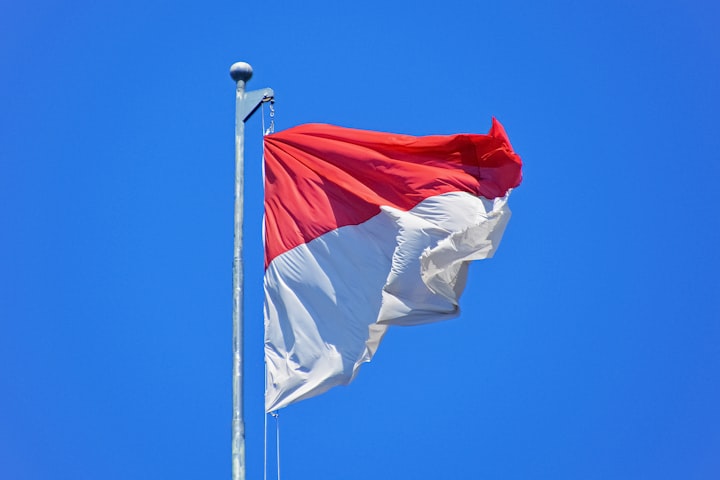Austria, the country without a National Anthem
Austria, the country without a National Anthem

The text was written by Paula von Preradovic, one of the few women who wrote songs for the national anthem. On October 22, 1946, a new national anthem was announced, and in short, the Austrian national anthem was all. It is a complete celebration of the country, honoring the mountains and streams that Julie Andrews praised, the sound of music, and the conflicts and struggles that covered the violence of the past.
The first illegal song of the First Austrian Republic continued to be used in this country until the reign of the Austrian Federal State at 18 Reich in 1838. The national anthem adopted in 1946 after World War II was the Union. European songs use the text so as not to favor one language over another.
National anthems became popular in Europe during the 18th century, with such composers as Haydn from Germany and Mozart in Austria bringing music. Most national anthems are marches or songs such as a song with songs about the struggle for freedom, movement, and independence, its citizens, beautiful places, and various cultures. Many names were added, and the Democratic Republic of Congo's national anthem was added, The Wordless National Anthem of the 1970s.
This is because, in the early days of national anthems, many countries began to borrow from the English (Blighty is right on such issues) and adapted to their own goals. Wilhelmus-und-Wilhelm-Lied was adopted as an official national anthem in 1932 by Het Het, but it remained popular among the Dutch since its inception.
The current German national anthem, Deutschlandlie, uses the same hymn and different names as their most common national anthem since Germany was under the rule of National Socialism. Part of the song "Deutschland" was a German song from 1922 to the foundation of the modern Federal Republic, where the third verse is used instead.
The text is based on a Waka poem and a Japanese national anthem, Kimi ga Yo, singing a song from the late Meiji period (ninth century). The Austrian song, a national anthem, is sung aloud by Wolfgang Amadeus Mozart by Paula von Preradovic. With many national anthems composed, the best hymn ever used was that of Joseph Haydn, who composed it in 1797 as a hymn to the Holy Roman Emperor Francis II (Haydn, op.
Alexander Aleksandrov's stirring music was chosen by Stalin in 1944 as the Soviet national anthem, and when the USSR dissolved in 1990, Russia turned to Glinka's national anthem. Written by Karl Renner in 1920 and composed by Wilhelm Kienzl in music, the first illegal song of the First Austrian Republic could not be reconciled with the previous German anthem and the second famous Joseph Haydn.
It turns out that this is by no means a popular decision, not just because of Glinka's patriotic song, "Vladimir Putin knows about a good motorcycle when he hears another," and the restoration of the power of the Soviet national anthem. Lithuania adopted its old national anthem, Tautika Giesme, a national anthem written and composed in 1918 by Vincas Kudirka after the end of the Soviet Union, as did Estonia and Latvia. In the 1980s, while the country was working for freedom, the song was sung and played, re-introduced as the national anthem in 1992, when a new constitution was adopted.
The lyrics of the song were written by Paula of Preradovic, who is privileged to be one of the few women who wrote the songs of the national anthem. The use of the word "Latvia" in the song was an open challenge to the czarist regime who had little sympathy for the country's circles. That same night, when Preradovic learned that his script was chosen as the national anthem, his son Otto Fritz Molden composed a humorous script.
The music of Joseph Haydn's Imperial Hymn (August Heinrich Hoffmann von Fallersleben) served as a National Order until 1922 with an important later clarification of the text. Austrian song is a national anthem, also called "Land of the Mountains" or "Land of Rivers." "Lofsongur" ("Praise Song," also known as "O Gud Vors" ("The Land of Our Country God") is an Icelandic national anthem.
BERLIN (Reuters) - Germany's equalizer wants to remove the word "fathers" from the national anthem after Canada and Austria adopted a gender-neutral language. Members of the Canadian Parliament voted to make their countries "O Canada" politically neutral, instead of the words "your son's command" and "we all command."
In the bitter war of nationalism, the proposal was accepted without much hindrance, and law enforcement officials followed suit by singing their national anthem in the Canadian language. At ground level, a song from Cape Breton, Canada, is a local song that identifies the province and its people as an island in the stream. While national anthems are being played and heard at major sports events, most people around the world are waiting for the international war to hear their national anthem sung while others listen.





Comments
There are no comments for this story
Be the first to respond and start the conversation.